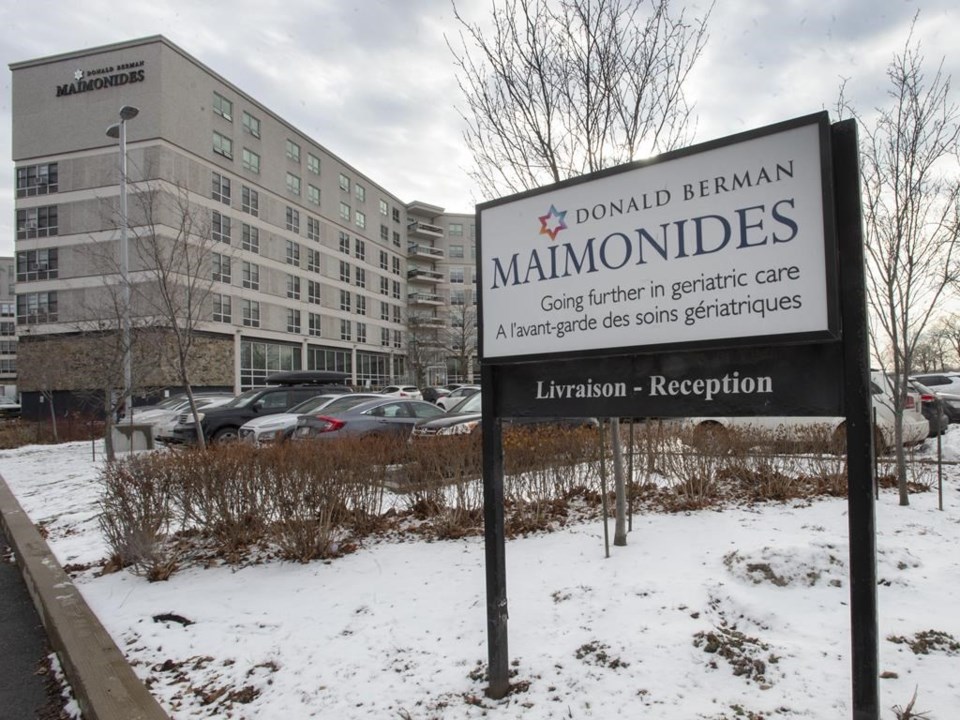Montreal long-term care residents due to receive a first dose of the COVID-19 vaccine in the coming days. and their families say they're ready as the province continues to report high numbers of infections and deaths.
"The quicker I get that shot in me, the better," Beverly Spanier, a resident of the Maimonides Geriatric Centre in the city's Cote-St-Luc neighbourhood, said Friday. "The last thing I want to do in the world is make things worse here."
The residence hard-hit by COVID-19 is one of two, along with St-Antoine long-term care home in Quebec City, whose residents and staff have been chosen by the province to receive the first doses of Pfizer's vaccine when it arrives.
"I'm feeling very grateful to have the vaccine being given. I think we need to take it," Spanier said. "I think the entire society is waiting. It's very important we try in every way we can to bring life back to normal."
Health Minister Christian Dube told reporters in Quebec City he still has Monday as the expected date of vaccine delivery, and a department spokeswoman confirmed vaccinations are scheduled to begin Monday.
"One thing I'll tell you is we'll be able to vaccinate the minute we get them," Dube said.
The 75-year-old Spanier said whatever the timeline, she's ready to see the economy and society get back to normal.
"Grandchildren need to see their grandparents. People need to live more normal lives. The faster we get there, the better, and if this shot can help us, lets do it," she said in a phone interview.
Joyce Shanks, whose father Harvey Stoliar is at Maimonides, said her father has consented verbally to getting the vaccine.
He has short-term memory problems, so often he doesn't remember there is a pandemic, she said, but he has been spared getting the virus. Last month Maimonides transferred 20 residents to local hospitals during a COVID-19 outbreak that as of Dec. 10 had claimed the lives of 15 residents during the second wave.
"I was very, very scared, nervous, but I'm getting excited because in six weeks, I'm going to be able to say my dad made it through this pandemic," Shanks said, noting nearly half of Maimonides residents have been infected over the months.
"I want to be able to get to the end of this and say my dad never got it, my dad was vaccinated and he's safe."
Josee Di Sano said she received a call this week asking whether she approved her mother Maria Di Clemente getting the vaccine. "They assured us they were going to have nurses and doctors, it's full hands-on," Di Sano said on Friday.
Her 81-year-old mother, who has Alzheimer's disease, had COVID-19 in March and was asymptomatic the whole time. But she received less care during the pandemic and can no longer walk on her own.
She's otherwise healthy, and Di Sano said she and her siblings agreed getting the vaccine was the best choice.
"We're damned if we do, damned if we don't but I spoke to my brothers and sisters and we decided it's better if she has it," Di Sano said. "It can't be any worse than what it is now. Every time I go in there, I feel like I'm going into World War 2 . . . everyone just dropping from corona, so we have to take that chance."
Details of the vaccine's arrival came as the Quebec government said Friday it may introduce further COVID-19 restrictions next week after reporting 53 additional deaths and 1,713 new COVID-19 infections.
On Friday, sectors of the Laurentians that include the popular resort towns of Mont-Tremblant and St-Sauveur learned they would move to the highest alert level on Monday, with bars, restaurant dining rooms, theatres and other venues closing and private gatherings forbidden.
Quebec has reported 160,023 cases and 7,435 deaths — more than half of Canada's deaths from COVID-19 since the pandemic began. With 1,736 new recoveries reported Friday, there have been a total of 136,646 since March.
Hospitalizations rose to 871, an increase of 23, and there were 10 more patients in intensive care, for a total of 123.
As the legislature adjourned until February, Legault reflected on the twists and turns of the year that saw him regularly address the media alongside public health director Dr. Horacio Arruda.
"I can tell you that during the year, especially the first few months, we didn't know where it would go," Legault said. "I didn't expect to spend more time with Dr. Arruda than with my wife, so, of course, it wasn't what was planned."
This report by The Canadian Press was first published Dec. 11, 2020.
Sidhartha Banerjee, The Canadian Press

